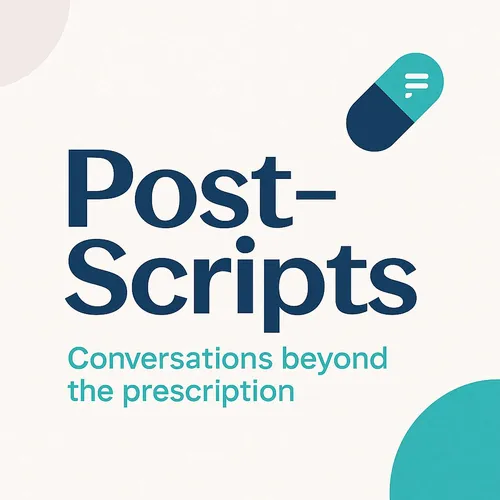Personalized Patient Engagement: The Future of Pharma
- Author
- PostrScripts Rx Team
- Published
- Thu 04 Sep 2025
- Episode Link
- None
The gap between receiving a prescription and achieving successful treatment outcomes remains one of healthcare's biggest challenges. In this illuminating conversation with Ryan Janvion, VP of Sales and Partnerships at Medisafe, we explore how digital health platforms are revolutionizing patient support after that crucial first prescription.
Drawing from his unique background as a college football player at Wake Forest and former Patriots scouting coordinator, Janvion brings a fresh perspective to pharmaceutical patient engagement. He reveals how pharma companies are pivoting away from building in-house digital solutions to partnering with specialized platforms that better understand patient behavior and preferences. "Pharma has awakened to the idea that they need to invest more in what happens beyond that initial script," Janvion explains, highlighting the industry's growing recognition that medication adherence demands ongoing support.
The discussion takes a fascinating turn when examining how personalization drives better outcomes. Just as coaches tailor their approaches to different athletes, digital health platforms customize support based on individual patient needs - from "drill sergeant" reminders to gentler encouragement. With over 13 years of experience and billions of data points, Medisafe has refined its approach to engaging patients without overwhelming them. The platform serves as a "digital front door" connecting patients to copay assistance, nurse educators, and other support services when they need them most.
Looking toward the future, Janvion predicts growing adoption of PDURs (prescribing digital therapeutics alongside medications) and increased integration across the healthcare ecosystem. As price transparency regulations reshape pharmaceutical competition, brand loyalty fostered through digital engagement will become increasingly valuable.
Whether you're a pharma marketer, digital health innovator, or healthcare provider, this conversation offers crucial insights into creating patient-centered support systems that drive better outcomes. Subscribe now to join our exploration of what happens after the script is written - where the real work of patient care begins.
PostScripts Rx is not intended to constitute medical advice, nor is it intended to influence prescribing decisions or any other medical or clinical decision-making. All medical and clinical judgment and decision-making, prescribing decisions, and all related considerations remain exclusively the responsibility of providers and patients.
